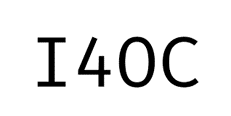Emotional recovery to reduce depressive symptoms in sexually abused teens
DOI:
https://doi.org/10.18050/psiquemag.v10i1.2579Keywords:
Adolescents, Program, Depression, Sexual abuseAbstract
The objective of this research was to present the effects of a psycho-emotional care program in reducing depression in victims of sexual abuse in a hospital in the Callao Region, 2019. It was carried out in 30 adolescent patients who were evaluated in levels of depression using the Beck Depression Inventory instrument (BID IIA). The pre and posttest quasi-experimental design was used. The results revealed that the experimental group significantly decreased depressive symptoms, finding a t = 20.34 and a p = <.001. The difference of the means in the post-test increased in favor of the experimental group in the two dimensions somatic t = 17.52 and a p = <.001 and affective cognitive t = 18.97 and a p = <.001. Finally, it is concluded that the program is effective in reducing depression in adolescents and it is recommended to train psychologists in it.
Downloads
References
Aiken, L. (1980). Content Validity and Reliability of Single ltems or Questionnaire. Educational and Psychological Measurement, 40, 955-959.
American Psychological Association. (2010). Publication of the American Psychological Association. (6.ª ed.). Washington, DC: Author.
Bandura, A. (1987). Teoría del aprendizaje social. S.L.U. Espasa Libros.
Bandura, A. y Walters, R. H. (1974). Aprendizaje social y teoría de la personalidad. Alianza Editorial.
Beck, AT, Epstein, N. & Harrison, R. (1983). Cognitions, attitudes and personality dimensions in depression. British Journal of Cognitive Psychotherapy, 1 (1), 1–16.
Beck, A., Rush, A., Shaw, B. y Emery, G. (2010). Terapia Cognitiva de la Depresión. (19.ª ed.). Editorial Desclée de Brower.
Beck, A., Rush, J., Shaw, B. y Emery, G. (1979). Terapia cognitiva de la depresión. Editorial Desclée de Brouwer.
Bronfenbrenner, U., & Morris, P. A. (1998). The ecology of developmental processes. In W. Damon, & R. Lerner (Eds.), Handbook of child psychology. Theoretical models of human development (5th ed., pp. 993–1028). New York, NY: John Wiley & Sons
Carranza, R. (2013). Propiedades psicométricas del inventario de depresión de Beck en universitarios de lima. Revista Psicológica de Trujillo/Journal of Psychology, 15(2), 170-182. https://n9.cl/vr6a
Cazau, P. (2006). Investigación en las ciencias sociales. (3a ed.). Argentina.
Cohen, J. (1988). Statistical power analysis for the behavioral sciences (2nd ed.). Hilldale, NJ: Lawrence Erlkbaum.
Dirección Regional de Salud del Callao (2017). Audiencia Regional Anual 2017. https://bit.ly/2RBGU4f
Driessen, M., Schulz, P., Jander, S., Ribbert, H., Gerhards, S., Neuner, F., & Koch-Stoecker, S. (2019). Effectiveness of inpatient versus outpatient complex treatment programs in depressive disorders: a quasi-experimental study under naturalistic conditions. BMC Psychiatry, 19(1), NA. https://bit.ly/38nN6Dq
Ellis, R. (2003). Task-based language learning and teaching. Oxford University Press.
Furukawa, TA, Weitz, ES, Tanaka, S., Hollon, SD, Hofmann, SG, Andersson, G., y Mergl, R. (2017). Initial severity of depression and efficacy of cognitive-behavioral therapy: individual-participant data meta-analysis of pill-placebo-controlled trials. The British Journal of Psychiatry, 210 (3), 190-196.
Guerra, C., & Barrera, P. (2017). Psicoterapia con víctimas de abuso sexual inspirada en la terapia cognitivo-conductual centrada en el trauma. Revista de Psicología (Santiago), 26(2), 16–28.
Hernández, R., & Mendoza, C. (2018). Metodología de la investigación. Las rutas cuantitativa, cualitativa y mixta. Editorial Mc Graw Hill.
Hoffman, S., Asnaani, A., Vonk, I., Sawyer, A. (2012). The Efficacy of Cognitive Behavioral Therapy: A Review of Meta-analyses. Revista Reserch Gate, 36(5), 427- 440.
Kline, R. (2016). Principles and practice of structural equation modelling (4th ed.). The Guilford Press.
Hospital Nacional Víctor Larco Herrera – Instituto Nacional de Salud. (2017). Guía de práctica clínica para tratamiento de la depresión en pacientes adultos – versión extensa – Lima: INS, Unidad de análisis y generación de evidencias; Serie Guía práctica No 04.
Martínez, V., Hernández, M., Godínez, T. (2012). Depresión en un grupo de pacientes con Diabetes mellitus tipo 2 en una Clínica Regional del municipio de Jilotepec, México. Revista Atención Familiar, 3, 58-60. https://tinyurl.com/ua5qa7m
Ministerio de Salud. (2015). Memoria Institucional 2013: Unidad Ejecutora 123 – Programa de apoyo a la Reforma del sector salud PARSALUD II / Compilado por Patricia D. Altamirano. (1a Ed) Lima, Perú.
Módulo de Maltrato infantil y del adolescente en salud. (2019). Estadística registrada a agosto 2019 por Oficina de estadística e informática del Hospital Carrión Callao.
Papalia, D., & Wendkos, S. (2017). Desarrollo Humano, (12a Ed). The McGraw-Hill companies, Inc.
Raes, F., Griffith, J. W., Van der Gucht, K., & Williams, J. M. G. (2014). School-based prevention and reduction of depression in adolescents: A cluster-randomized controlled trial of a mindfulness group program. Mindfulness, 5(5), 477-486. http://dx.doi.org/10.1007/s12671-013-0202-1
World Health Organization. (2019). International Statistical Classification of Diseases and Related Health Problems (11th ed.). https://icd.who.int/
Downloads
Published
How to Cite
Issue
Section
License
Copyright (c) 2021 PsiqueMag

This work is licensed under a Creative Commons Attribution-NonCommercial-NoDerivatives 4.0 International License.
You are free to:
- Share — copy and redistribute the material in any medium or format
- The licensor cannot revoke these freedoms as long as you follow the license terms.
Under the following terms:
-
Attribution — You must give appropriate credit, provide a link to the license, and indicate if changes were made. You may do so in any reasonable manner, but not in any way that suggests the licensor endorses you or your use.












